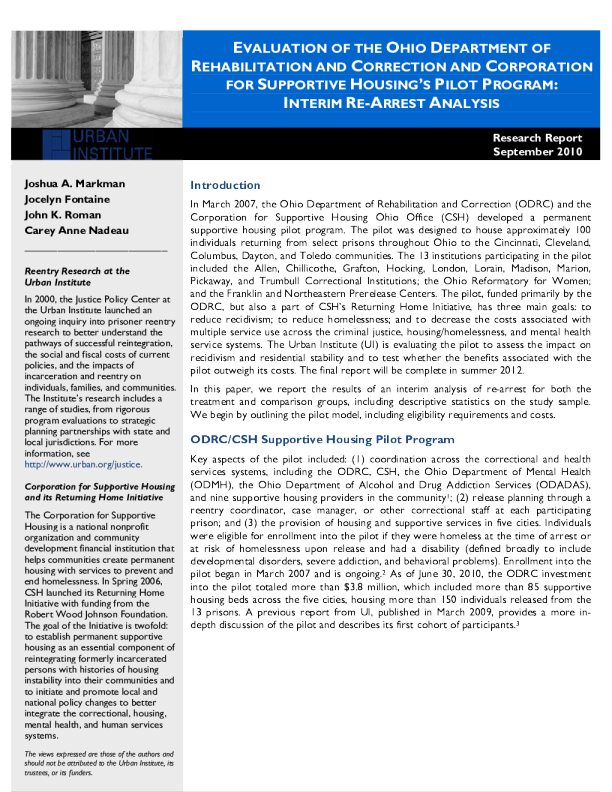A Descriptive Analysis of the US Department of Labor's Long-Term Care Registered Apprenticeship Programs

U.S. Department of Health and Human Services Assistant Secretary for Planning and Evaluation Office of Disability, Aging and Long-Term Care Policy A DESCRIPTIVE ANALYSIS OF THE U.S. DEPARTMENT OF LABOR’S LONG-TERM CARE REGISTERED APPRENTICESHIP PROGRAMS July 2010 Office of the Assistant Secretary for Planning and Evaluation The Office of the Assistant Secretary for Planning and Evaluation (ASPE) is the principal advisor to the Secretary of the Department of Health and Human Services (HHS) on policy development issues, and is responsible for major activities in the areas of legislative and budget development, strategic planning, policy research and evaluation, and economic analysis. ASPE develops or reviews issues from the viewpoint of the Secretary, providing a perspective that is broader in scope than the specific focus of the various operating agencies. ASPE also works closely with the HHS operating divisions. It assists these agencies in developing policies, and planning policy research, evaluation and data collection within broad HHS and administration initiatives. ASPE often serves a coordinating role for crosscutting policy and administrative activities. ASPE plans and conducts evaluations and research--both in-house and through support of projects by external researchers--of current and proposed programs and topics of particular interest to the Secretary, the Administration and the Congress. Office of Disability, Aging and Long-Term Care Policy The Office of Disability, Aging and Long-Term Care Policy (DALTCP), within ASPE, is responsible for the development, coordination, analysis, research and evaluation of HHS policies and programs which support the independence, health and long-term care of persons with disabilities--children, working aging adults, and older persons. DALTCP is also responsible for policy coordination and research to promote the economic and social well-being of the elderly. In particular, DALTCP addresses policies concerning: nursing home and community-based services, informal caregiving, the integration of acute and long-term care, Medicare post-acute services and home care, managed care for people with disabilities, long-term rehabilitation services, children’s disability, and linkages between employment and health policies. These activities are carried out through policy planning, policy and program analysis, regulatory reviews, formulation of legislative proposals, policy research, evaluation and data planning. This report was prepared through a contract funded by an Interagency Agreement between HHS’s ASPE/DALTCP and the U.S. Department of Labor. For additional information about this subject, you can visit the DALTCP home page at http://aspe.hhs.gov/_/office_specific/daltcp.cfm or contact the ASPE Project Officer, Marie Squillace, at HHS/ASPE/DALTCP, Room 424E, H.H. Humphrey Building, 200 Independence Avenue, S.W., Washington, D.C. 20201. Her e-mail address is: Marie.Squillace@hhs.gov. A DESCRIPTIVE ANALYSIS OF THE U.S. DEPARTMENT OF LABOR’S LONG-TERM CARE REGISTERED APPRENTICESHIP PROGRAMS Wayne Anderson, PhD Galina Khatutsky, MS Joshua M. Wiener, PhD RTI International Robert Lerman, PhD Daniel Kuehn, MPP Urban Institute July 2010 Prepared for Office of Disability, Aging and Long-Term Care Policy Office of the Assistant Secretary for Planning and Evaluation U.S. Department of Health and Human Services The opinions and views expressed in this report are those of the authors. They do not necessarily reflect the views of the Department of Health and Human Services, the contractor or any other funding organization. i TABLE OF CONTENTS GLOSSARY OF TERMS ................................................................................................. iv 1. INTRODUCTION ..................................................................................................... 1 2. METHODOLOGY .................................................................................................... 8 3. RESULTS ............................................................................................................. 11 3.1. Apprentice-Level Analyses ......................................................................... 11 3.2. Program-Level Analyses ............................................................................ 22 3.3. Findings from Interviews with Program Sponsors....................................... 31 4. DISCUSSION ........................................................................................................ 32 4.1. Apprentice-Level Findings .......................................................................... 32 4.2. Program-Level Findings ............................................................................. 33 4.3. Assessment of RAPIDS Data for Use in Planning for or Conducting a LTC RAPs Evaluation ........................................................... 34 5.




